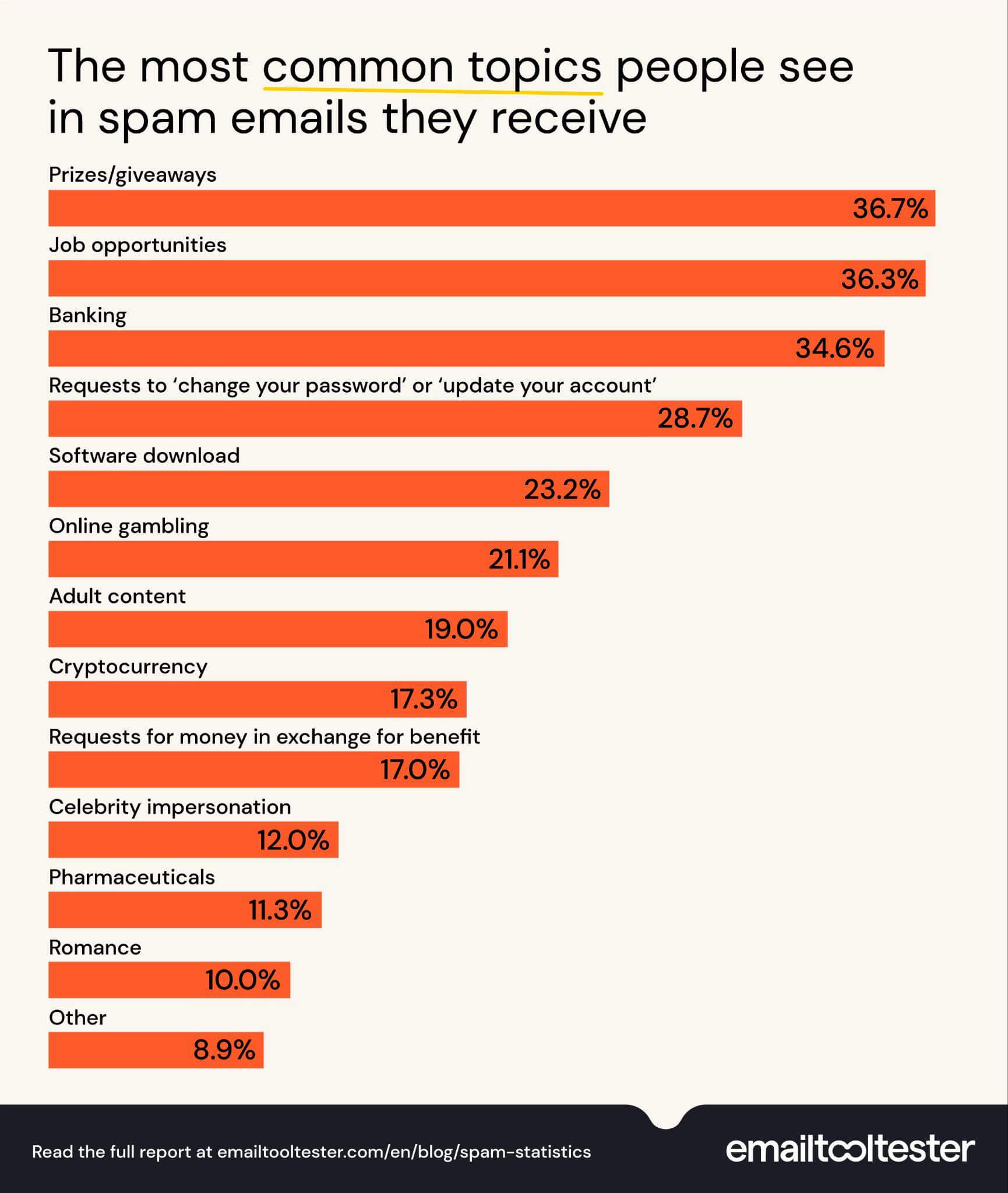Choose your answer and the correct choice will be revealed.

At the 2004 World Economic Forum in Davos, Bill Gates – then Microsoft’s Chief Software Architect – made a bold prediction: within two years, the problem of email spam would be solved.
Gates outlined a few possible solutions, two of which involved requiring senders to solve computational puzzles (a concept similar to what we now know as proof-of-work). But his preferred solution was a monetary system in which email senders would pay a small fee, similar to a digital postage stamp, to send a message. Trusted contacts like friends and family could be exempt from the charge.
“Two years from now, spam will be solved,” Gates said, expressing confidence in the monetization model. “In the long run, the monetary [method] will be dominant.”
However, reality played out differently.
By 2007, far from being solved, spam had reached record levels. That year, an estimated 10.8 trillion spam emails were sent, surpassing the 10.5 trillion legitimate messages. Spam traffic peaked in 2008, when it accounted for approximately 92% of all email traffic, according to Cisco’s 2009 Annual Security Report.
Thankfully, advances in spam filters and machine learning algorithms have significantly improved email security and user experience over the years.
As of 2023-2024, various sources still report different figures, but there is a clear decline in spam volume:
- According to Statista, spam accounted for around 45% of global email traffic in 2023.
- A separate report from Kaspersky placed the figure slightly higher at 49%.
- Gmail, one of the most widely used email platforms, claims to block over 99.9% of spam, phishing, and malware from reaching inboxes.
While email systems have become better at filtering spam, the problem has not been eradicated, rather it’s evolved.
Spammers now employ more sophisticated methods, often disguising their messages as legitimate communications to bypass filters. Moreover, the rise of phishing and ransomware campaigns shows that while raw spam volume may be lower, the threat remains.
In hindsight, Gates’ prediction was overly optimistic. His proposed monetization system never took off, and yet the battle against spam continues, shaped by advancements in AI, cybersecurity, and global cooperation.






